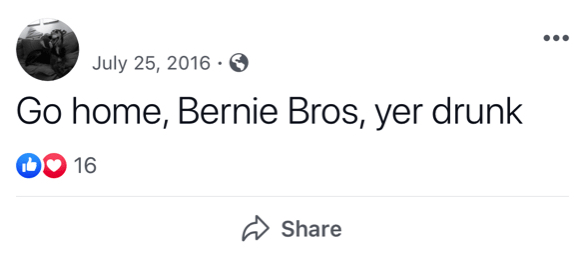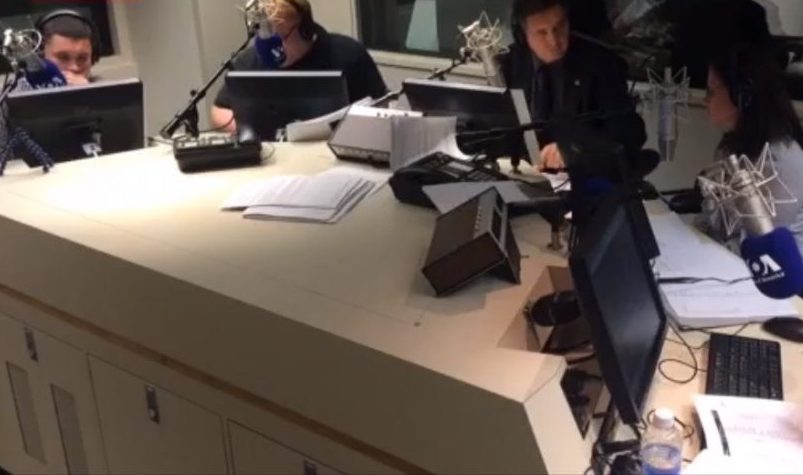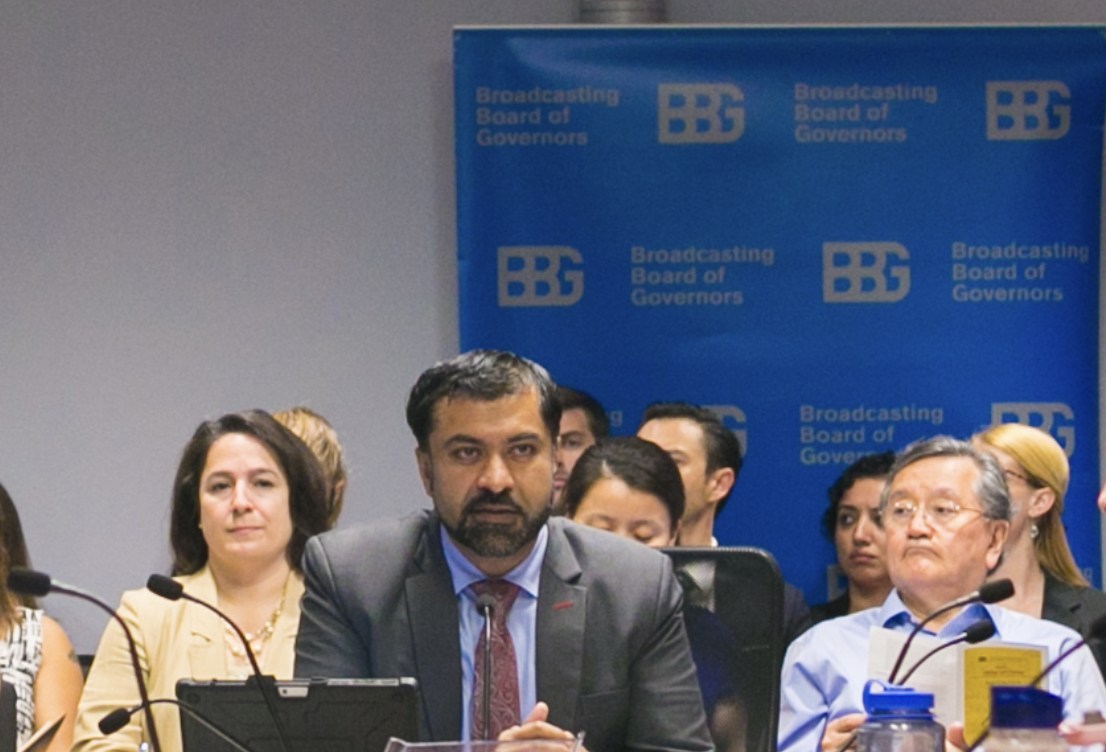In violation of its Congressional Charter, U.S. taxpayer-funded Voice of America (VOA) had posted several hit pieces on Donald Trump during the 2016 election campaign. One of them was a video of Hollywood actor Robert De Niro calling Donald Trump “dog,” “pig,” “mutt,” and other names, which the Voice of America translated into Ukrainian and uploaded the video to Facebook. The VOA Charter, which is U.S. law, requires VOA programs to be accurate, fair and balanced.
VOA did not ask Donald Trump or his supporters for a response to the De Niro video and did not include one in its own production of the video with foreign-language subtitles and the VOA logo watermark in the upper right corner. After the watch dog group BBG Watch reported on the Voice of America’s one-sided and partisan attack video, the VOA management removed it from Facebook but did not issue an apology.
VOA had produced other partisan news reports during the 2016 election campaign, and several VOA journalists have posted multiple anti-Trump comments and memes on social media between 2016 and 2020 under lax supervision by senior agency officials appointed during the Obama Administration.
In addition to complaints from the Trump campaign team, in 2016 the Voice of America was also accused by Senator Bernie Sanders’ supporters of “state-media bias.” One VOA reporter had posted an anti-Bernie Sanders comment on his personal Facebook page while covering the 2016 Democratic Party convention for Voice of America English-language news and broadcasts. The same reporter also posted multiple anti-Trump comments and memes.

The Voice of America is the main media entity oversees by the United States Agency for Global Media (USAGM), which until 2018 was known as the Broadcasting Board of Governors (BBG). In FY2019, USAGM cost U.S. taxpayers $828,717,000. The net cost of Voice of America operations from the USAGM budget was $425,409,000, which includes USAGM support for VOA. The VOA budget was listed on a USAGM Fact Sheet at $234.7 million in FY2019.
There has been no mainstream media reporting on any impact of taxpayer-funded VOA partisan propaganda on voter behavior in the United States, including any impact of VOA programming on ethnic U.S. voters. Much of the web traffic for VOA English-language news reports, videos and social media posts comes from the United States. By U.S. law, the Voice of America is not allowed to specifically target audiences in the United States, but in reality Americans get VOA news content on the Internet, including social media platforms and through Google and other search engines. Without being aware of it and without being warned, Americans are exposed to partisan and biased reporting whenever the Voice of America violates its own VOA Charter and is in violation of U.S. law. These violations have reached unprecedented levels under the management appointed during the Obama Administration. So far (March 2020), these holdover senior USAGM and VOA officials and managers have not been replaced by the Trump Administration.
The National Defense Authorization Act (NDAA) for Fiscal Year 2013 (Public Law 112-239) allows U.S. government officials to disseminate in the United States news and information programs produced by the government at taxpayers’ expense for audiences abroad.
This change in the law, which earlier under the Smith-Mundt Act of 1948 prohibited U.S. government officials from actively distributing such material domestically, raises constitutional and civil liberties questions.
It is important to note that even under the old law it was never illegal for American citizens, residents of the United States or American media outlets to use and rebroadcast Voice of America programs in the United States if they obtained them on their own, for example from the Internet. Some private American citizens and some U.S. media outlets used VOA programs before 2012 without any problems.
What the Smith-Mundt Modernization Act of 2012, which was incorporated into the FY 2013 NDAA, did was to give government officials, specifically the State Department and the Broadcasting Board of Governors (BBG) officials, the power to disseminate these programs in the United States upon request.
The new law still does not allow the BBG, which is now the U.S. Agency for Global Media, to produce programs for domestic audiences. Fears have been raised, however, that government officials will use their new powers to in fact produce such programs or at least to target specific groups of Americans based on their ethnic or religious origins.
The current law still clearly states that U.S. taxpayers’ money cannot be used by the U.S. Agency for Global Media to produce any programs to target Americans.
In General—No funds authorized to be appropriated to the Department of State or the Broadcasting Board of Governors shall be used to influence public opinion in the United States.
One of the purposes of the USAGMWatch website is to keep an eye on U.S. government officials to make sure that they do not abuse their new powers. The impact of Voice of America programming and VOA officials, editors and reporters on the 2016 U.S. presidential and other elections has not been probed. Members of Congress, taxpayers and supporters of President Trump and Bernie Sanders should be asking for an investigation. While VOA has not yet produced one-sided attacks on Joe Biden, his campaign and his supporters may also want to look into this issue to protect the Voice of America from partisanship.









